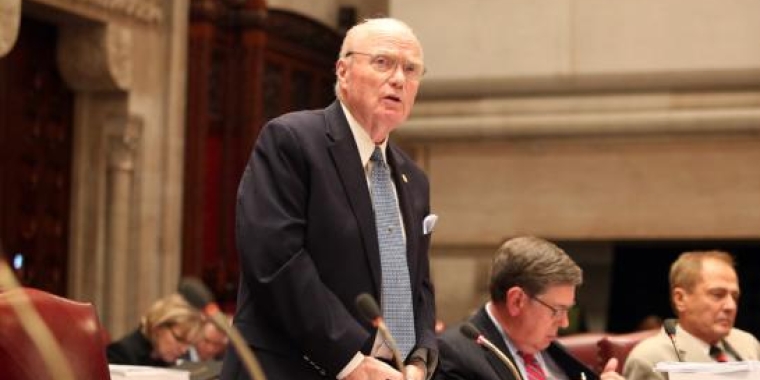
Senator Farley Sponsors New Bill to Change Child Protection Laws
State Senator Hugh T. Farley (R, C, I - Schenectady) recently co-sponsored legislation that would help protect children from cruel and repeated abuse.
"In response to the murder cases of Caylee Anthony and 8-year-old Brooklyn resident Leiby Kletzky, I have received over a thousand emails from constituents asking for laws that ensure that children are protected and perpetrators are punished," Senator Farley said.
The bill that Senator Farley co-sponsored in the New York State Senate, also called "Protect Our Children Act" (S.5862), would create the new crime of aggravated murder of a child with a sentence of life without parole.
In addition, the bill would expand an existing law of aggravated abuse of a child which makes it a crime when someone recklessly causes physical injury to a child under the age of 14. The law currently applies only to day care providers, but this bill would expand it to also apply to parents, guardians or a person in a position of trust.
A few years ago, Senator Farley sponsored legislation known as "Xctasy’s Law," which closed a loophole in New York's child abuse reporting statute. The measure was named after Xctasy Garcia, a four-year-old Schenectady child who has been the victim of horrendous child abuse.
"There is nothing more precious than the health and well-being of our children, and there is nothing more reprehensible than the abuse of these innocents," said Farley.
Other provisions of the "Protect Our Children Act" would:
* Create a new felony for concealing the death of a child;
* Create a new felony for failing to notify law enforcement when the whereabouts of a young child is unknown for more than 24 hours;
* Create new felony offenses for obstructing the location of a missing child;
* Create a felony child endangering statute to protect children from especially cruel and sadistic conduct;
* Create a statute to protect children from serious reckless abuse. To the extent existing laws address reckless conduct, they minimize the seriousness by treating it as a low level offense or often include the requirement that the conduct be "depraved," an element that New York courts have in recent years interpreted in a way that is extremely difficult to prove; and
* Increase penalties for repeat child abusers.

